Table of Contents
Social Media and Your Mental Health
In today’s digital age, social media has become an integral part of daily life, particularly for teenagers. While it offers numerous opportunities for connection, learning, and entertainment, it also presents significant challenges to mental and physical well-being. The term “social dilemma” aptly describes the complex relationship between social media use and mental health, especially for teens navigating the pressures of adolescence. This content delves into the causes and consequences of social media addiction among teens, how it affects their mental health, and potential strategies for managing usage effectively.
Social media has become an integral part of daily life, shaping how we communicate, learn, and engage with the world. However, its impact on mental health is increasingly being studied, especially regarding its effects on teens and adults. As social media continues to evolve, so too does its influence on mental well-being. Recent studies from 2024 and 2025 highlight that prolonged social media usage correlates with an increase in anxiety, depression, and loneliness, especially in vulnerable populations such as teens.
2025 Study: 38% of teens report feeling more anxious when using social media for more than 3 hours per day.
2024 Research: Gen Z is more likely to feel socially disconnected despite being hyper-connected online.
Why Are Teens Addicted to Social Media?

Teens are particularly susceptible to social media addiction due to several factors, including peer pressure, validation-seeking behavior, and the constant availability of new content. Social media platforms are designed to maximize user engagement through algorithms that push content to users that matches their preferences, creating a cycle that keeps them coming back for more.
Psychological Factors:
Validation: Teenagers are in a stage of self-discovery and are seeking external validation. Likes, comments, and shares act as immediate rewards, boosting self-esteem.
Peer Pressure: The fear of missing out (FOMO) on social events, trends, and important information makes it hard for teens to disconnect.
2025 Insight:
A recent study found that 42% of teens feel pressured to maintain a “perfect” online image, which fuels constant social media engagement.
Social Media Addiction in Teens: Impact on Mental Health

Social media addiction among teens has been linked to a wide array of negative psychological outcomes. Research suggests that excessive use of social media can exacerbate feelings of anxiety, depression, and loneliness. The pressure to maintain a perfect image or constantly stay updated on others’ lives can lead to heightened levels of stress and emotional distress.
One of the most prevalent issues is the phenomenon of Fear of Missing Out (FOMO). Teens often compare their lives to the curated content they see on social media, leading to feelings of inadequacy or envy. This can trigger a cycle of negative self-image, depression, and anxiety, where the digital world becomes a source of constant comparison.
Another significant impact is sleep disruption. Studies have shown that teens who spend long hours on social media, especially before bedtime, experience poor sleep quality and insomnia. This can further amplify feelings of fatigue, irritability, and difficulty concentrating, affecting overall mental health.
Social media addiction in teens can have profound effects on their mental health. The pressure to appear perfect online often leads to anxiety, depression, and self-esteem issues. Furthermore, the constant scrolling and comparisons to others can create unrealistic expectations.
Recent Findings:
2024 Data: 60% of teens reported feeling depressed after comparing themselves to others on Instagram, with many struggling with body image issues.
Increased Anxiety: Studies in 2025 have shown that 45% of teens with social media addiction also suffer from heightened anxiety and stress.
Is Deleting Social Media a Sign of Depression?

For some teens, stepping away from social media can be a sign of deeper emotional or psychological distress. If a teen suddenly deletes their social media accounts or becomes increasingly withdrawn, it may be indicative of depression or anxiety. However, it’s important to note that deleting social media doesn’t always signal depression. For some teens, it can be a healthy step toward self-care, helping them reclaim their time, reduce stress, and restore mental clarity.
Parents, educators, and mental health professionals should pay attention to any drastic behavioral changes that coincide with social media withdrawal. If such behavior is accompanied by other signs of depression, such as sadness, irritability, or loss of interest in activities, it may be worth addressing through counseling or therapy.
Psychological Insight:
Depression Link: For some teens, disconnecting from social media can be a form of self-preservation, as it allows them to escape the pressures of online validation and comparison.
2025 Trend: More teens are taking breaks from social media, with 20% reporting that a temporary digital detox significantly improved their mood and well-being.
Teens Using Social Media for Good Deeds

While the conversation often focuses on the negative effects of social media, it’s important to highlight the positive potential. Many teens are using social media platforms to engage in activism, volunteer work, and charitable endeavors. From spreading awareness about social justice issues to raising funds for various causes, social media offers teens a platform to make a positive impact.
By using social media for good deeds, teens can cultivate a sense of purpose and empowerment. These positive experiences can help foster resilience and boost mental well-being. However, it’s essential for teens to strike a balance between online engagement and real-life interactions to ensure that their use of social media remains healthy and fulfilling.
Despite its drawbacks, social media can also be a force for good. Social media enables them to connect with others who share their interests and values.
Examples:
Activism: Social media campaigns such as climate change awareness, LGBTQ+ rights, and racial justice are increasingly popular among Gen Z.
Support Networks: Many teens find solace and guidance in online support groups, sharing experiences and offering advice.
Social Media Pros and Cons for Teens
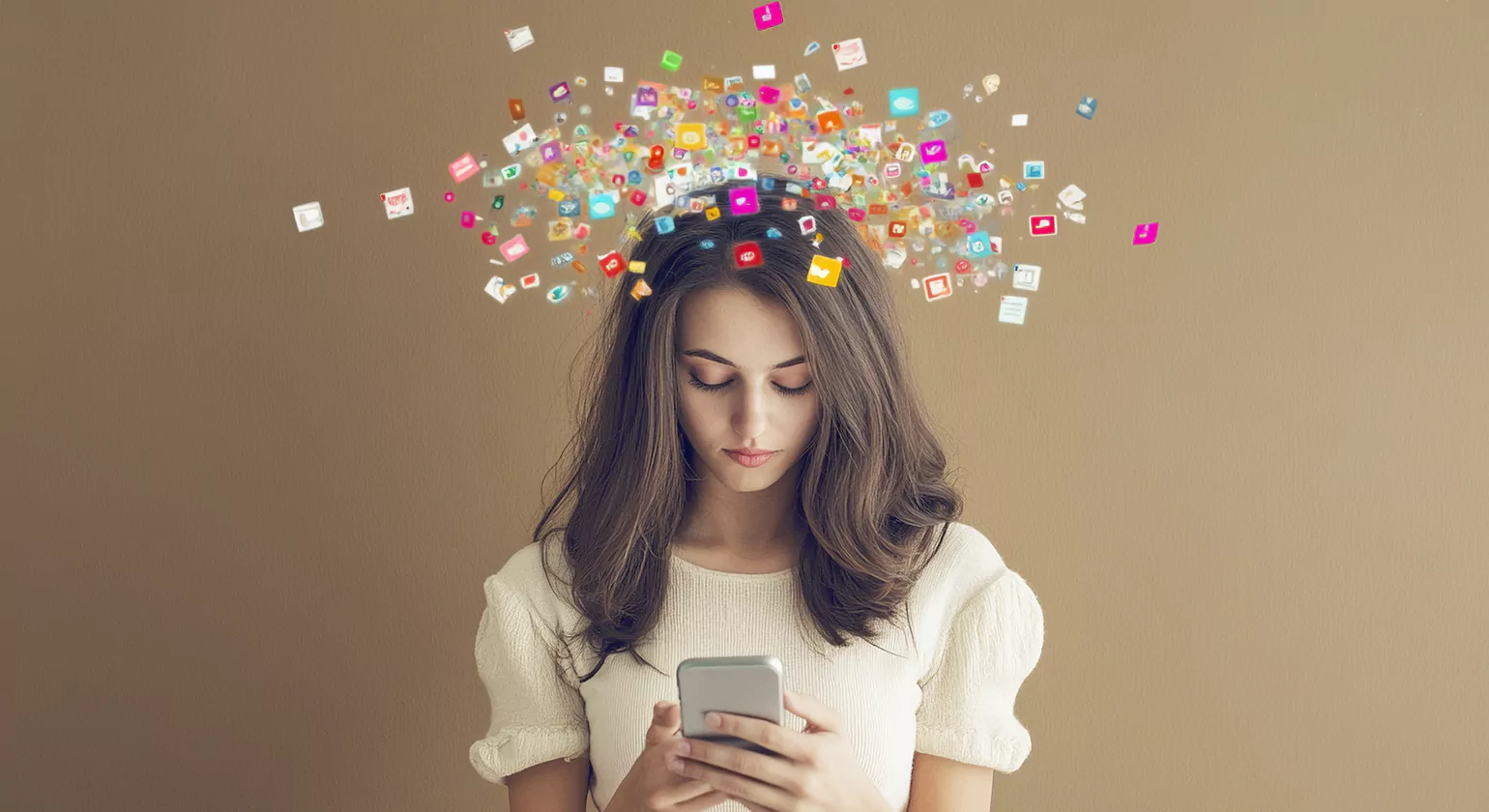
Pros:
- Connection and Socialization:
Social media allows teens to stay connected with friends and peers, bridging geographical gaps and maintaining relationships. - Educational Content:
Many platforms provide valuable learning resources, allowing teens to explore new ideas, skills, and hobbies. - Self-expression and Identity Development:
Social media provides a space for teens to express their opinions, creativity, and personal interests.
Cons:
- Mental Health Risks:
As mentioned, excessive use of social media can lead to anxiety, depression, and feelings of isolation. - Cyberbullying:
Teens are at risk of being targeted by cyberbullies, which can lead to emotional trauma. - Unrealistic Expectations:
The curated nature of social media can create unrealistic beauty standards and pressures to conform, contributing to low self-esteem.
How Can Social Media Affect Physical Health?

The impact of social media is not limited to mental health—physical health can also suffer from excessive use. Prolonged screen time, especially when coupled with poor posture, can lead to physical discomfort and chronic issues such as eye strain, headaches, and neck pain. Moreover, the sedentary nature of social media use can contribute to physical inactivity, leading to weight gain and associated health problems.
The link between social media and sleep disturbances has already been discussed, but it’s worth emphasizing that disrupted sleep patterns can have far-reaching effects on a teen’s physical health, including weakened immune function, impaired cognitive performance, and increased risk of developing chronic conditions like hypertension and diabetes.
2025 Insight:
Sleep Disruption: 50% of teens report poor sleep quality due to late-night social media scrolling.
Physical Strain: The rise of “text neck” and eye strain has been linked to increased screen time.
The TikTok Effect: Social Media’s Havoc on Teen Mental Health in the USA
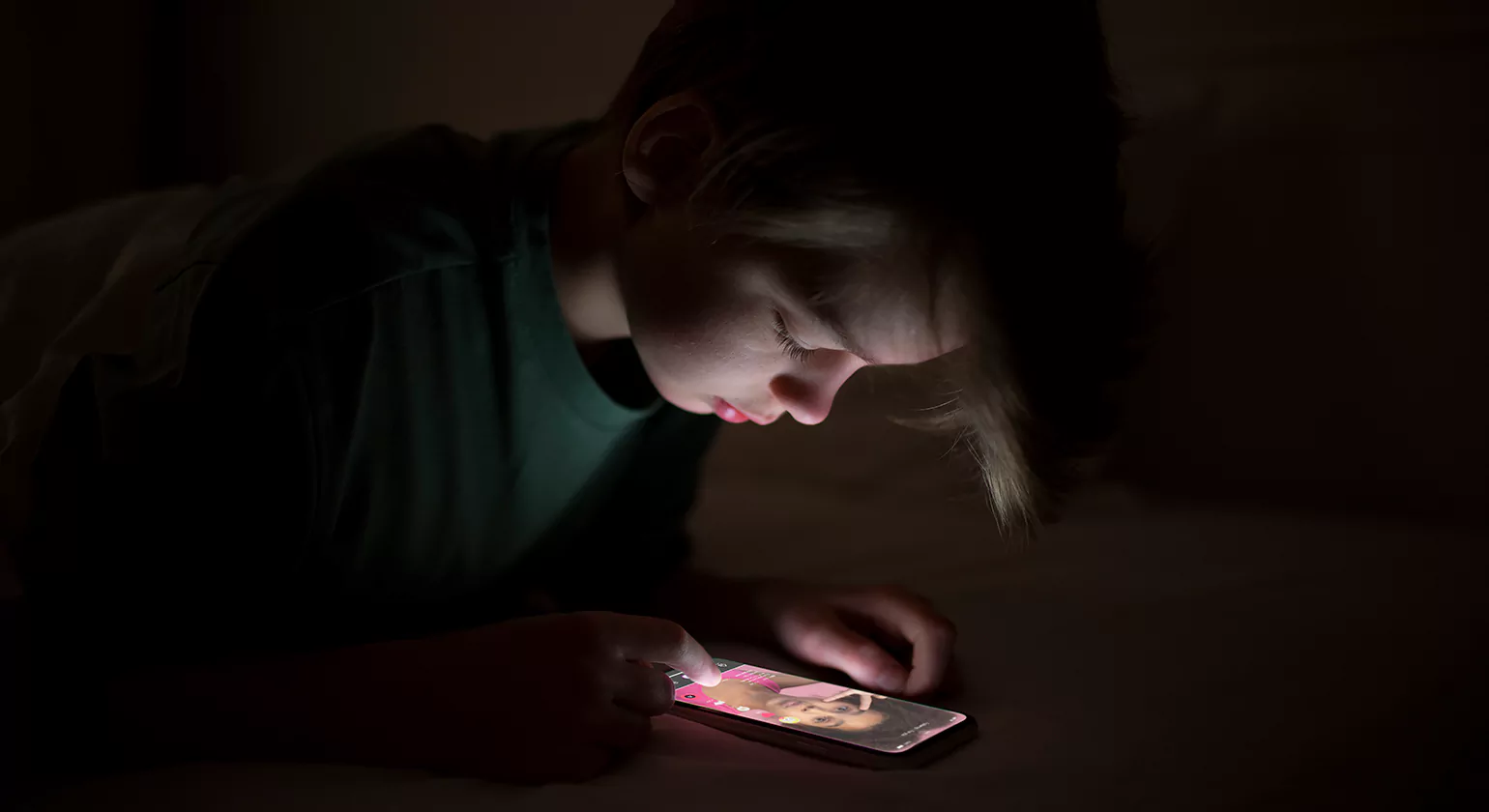
TikTok has taken the world by storm, especially among younger audiences. With its quick videos, viral trends, and personalized recommendations, the platform’s algorithm is designed to engage users for extended periods. While TikTok offers opportunities for entertainment and education, it also poses risks, particularly for mental health. The highly visual nature of TikTok exacerbates body image issues, with many users—especially in Gen Z—reporting negative impacts on their self-esteem and body image.
In 2024, 40% of TikTok users reported that their body image worsened due to comparing themselves to influencers and viral content. Additionally, excessive TikTok use has been linked to poor sleep hygiene, which further contributes to anxiety and depression. While TikTok can serve as a platform for activism and social change, its overuse can be detrimental to mental well-being.
Research from 2025 indicates that young adults are twice as likely to experience depression and anxiety when using TikTok for over three hours a day.
40% of Gen Z TikTok users report that their body image has worsened after using the platform regularly.
30% of teens in 2024 report feeling addicted to TikTok, with many noting it affects their mental health negatively.
2025 Social Media Algorithms: How They Manipulate Your Mind
Social media algorithms are designed to keep users engaged by delivering content tailored to their preferences. This reinforcement learning model continuously tweaks recommendations based on user behavior, forming echo chambers and amplifying biases. Dopamine-driven feedback loops from platforms like TikTok and Instagram reward users for consuming more content, often triggering addictive cycles. Studies have shown that these loops can cause anxiety, loneliness, and low self-esteem, especially when it comes to body image or career comparisons. These algorithms prioritize engagement over well-being, showing more of what users interact with the most, even if it’s detrimental to their mental health.
A 2024 study found that 40% of Gen Z TikTok users reported that social media worsened their body image perception and led to increased anxiety, largely due to the platform’s focus on viral, visually appealing content.
Digital Wellbeing Toolkit: 5 Science-Backed Strategies
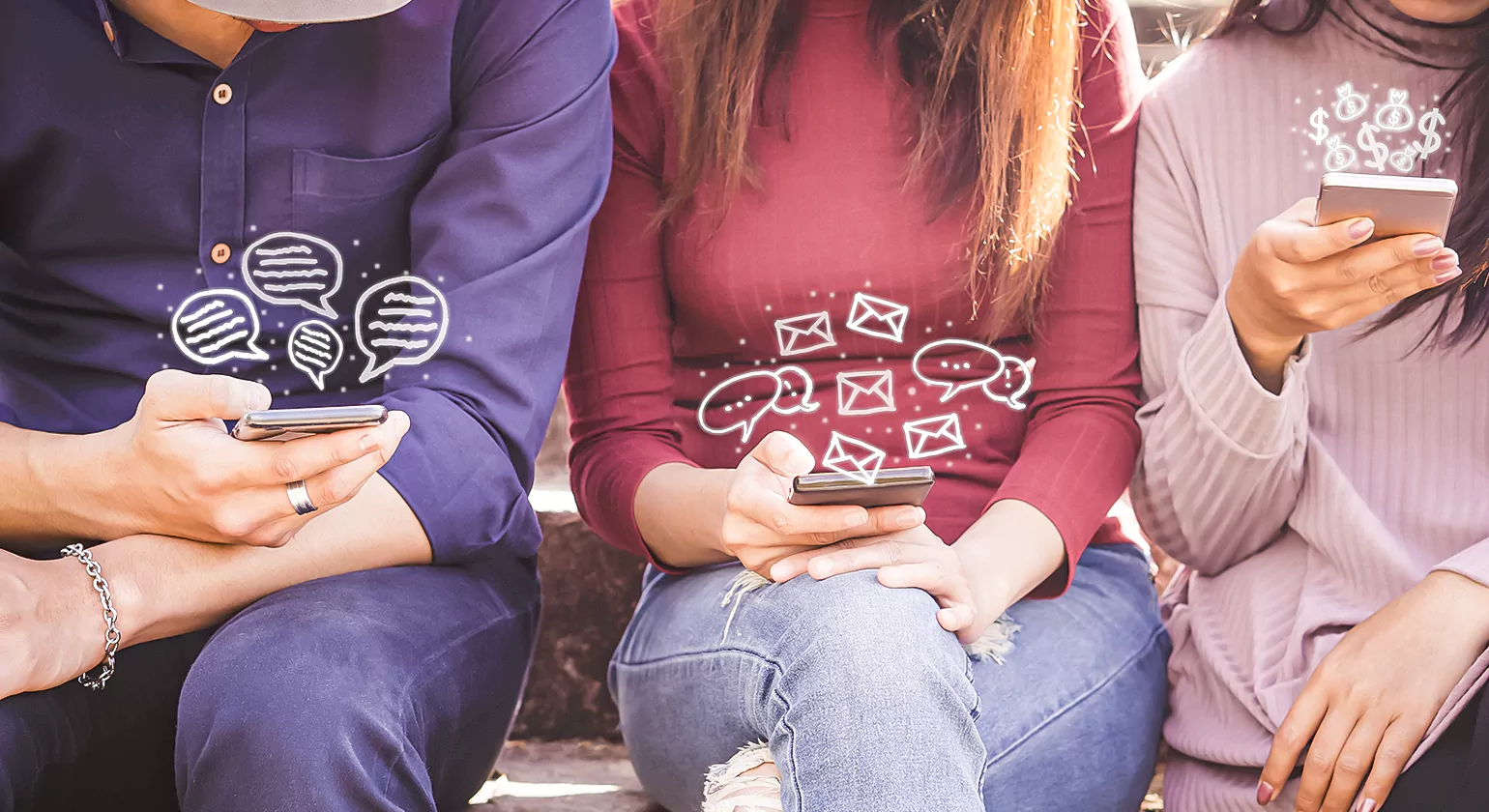
Incorporating healthy digital habits is essential in managing the negative mental health impacts of social media. Here are five science-backed strategies for better screen-time management:
Screen-Time Management Apps: Tools like Freedom and Forest help users limit screen time by blocking distractions and encouraging focus.
The Pomodoro Technique: This method breaks work into intervals (typically 25 minutes) followed by short breaks, promoting balanced social media usage.
Mindfulness Scripts: Guided meditations and mindfulness exercises can help reduce the anxiety that often follows excessive social media scrolling.
Digital Detox: Designating “no-screen” times, such as during meals or before bed, helps reset the brain and improve sleep hygiene.
Social Media Boundaries: Setting clear guidelines on social media use, such as limiting apps to certain hours or prioritizing real-life interactions, can mitigate harmful effects.
Beyond Teens: Social Media's Impact on Adults (2025 Data)
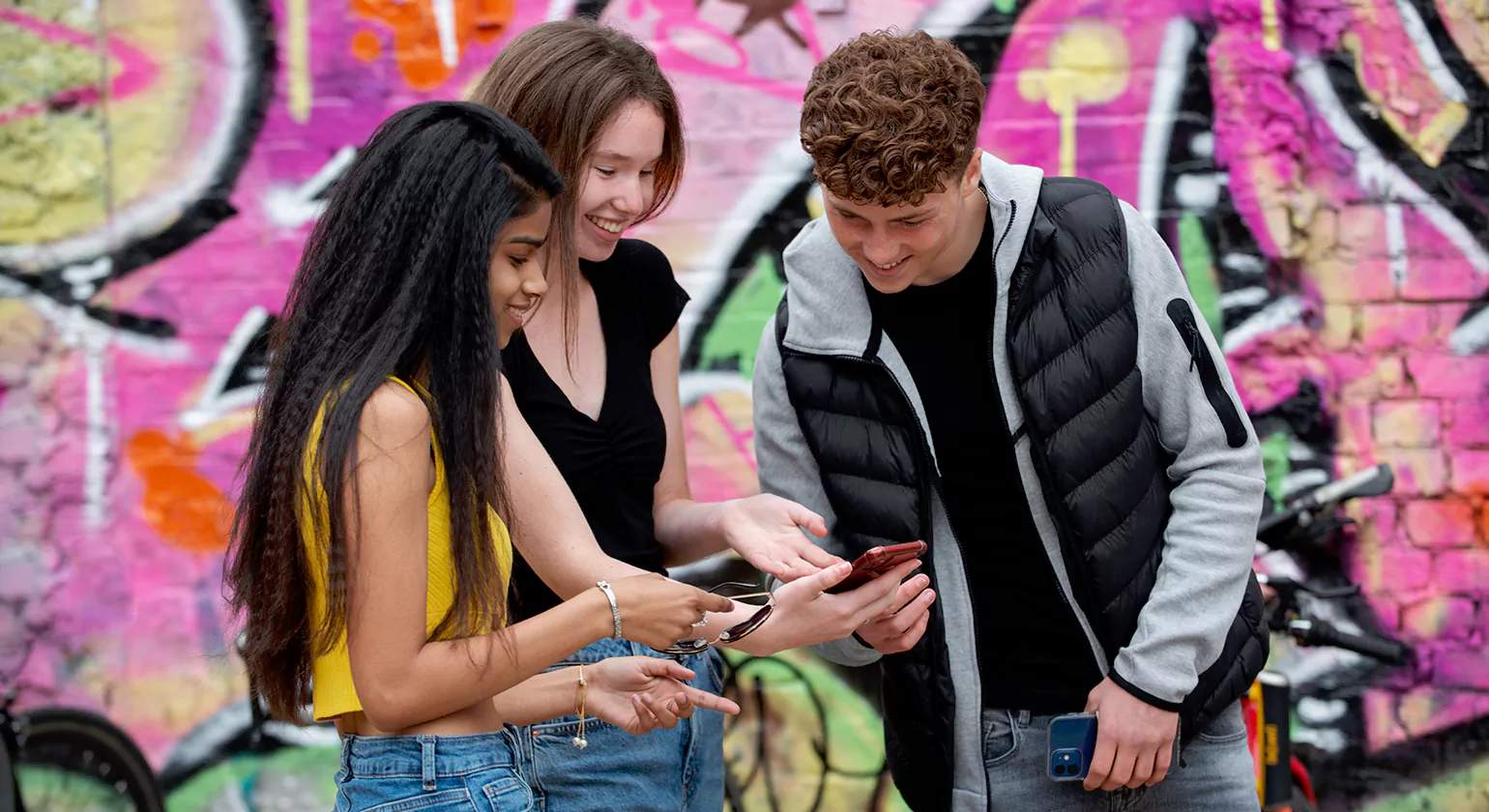
While social media’s impact on teens is well documented, its effects on adults—especially Gen Z and Millennials—are becoming increasingly important. A recent study on workplace burnout found that 45% of millennials reported feeling overwhelmed by career-related anxiety fueled by platforms like LinkedIn. Furthermore, 30% of parents experienced heightened stress due to unrealistic expectations on parenting shared on Instagram and Facebook.
Adults, particularly those balancing work and family life, are increasingly vulnerable to social media’s pressures. Gen Z, in particular, faces unique challenges as they navigate the intersection of their personal and professional lives online. Research from 2024 shows that Gen Z adults report feeling immense pressure to maintain a perfect online image, exacerbating stress and leading to mental health issues like anxiety and depression.
Prevention and Intervention Strategies
To mitigate the negative effects of social media addiction, both prevention and intervention are necessary. Parents and caregivers can play a crucial role by setting healthy boundaries and encouraging open discussions about the impact of social media. Teaching teens about mindful usage and the importance of taking breaks can help cultivate a balanced relationship with digital platforms.
Schools and communities can also contribute by integrating digital literacy programs that address both the positive and negative aspects of social media. Raising awareness about the potential risks, fostering healthy habits, and encouraging face-to-face interactions are essential steps in promoting adolescent well-being in the digital age.
Conclusion
Social media presents both opportunities and challenges for teens. While it can foster connection, creativity, and activism, it also comes with risks, especially in terms of mental and physical health. Understanding the causes, consequences, and benefits of social media use is crucial for developing strategies to manage its impact. By promoting healthy usage, providing support, and educating teens, parents, and educators can help mitigate the harmful effects while maximizing the positive aspects of social media in a teen’s life.
Key Takeaways:
Social media can negatively impact teens’ mental health, but it also offers opportunities for connection and positive engagement.
Awareness and intervention are key to mitigating risks like anxiety, depression, and addiction.
Seeking Support: Teen Therapy and Depression Counseling at Lakes
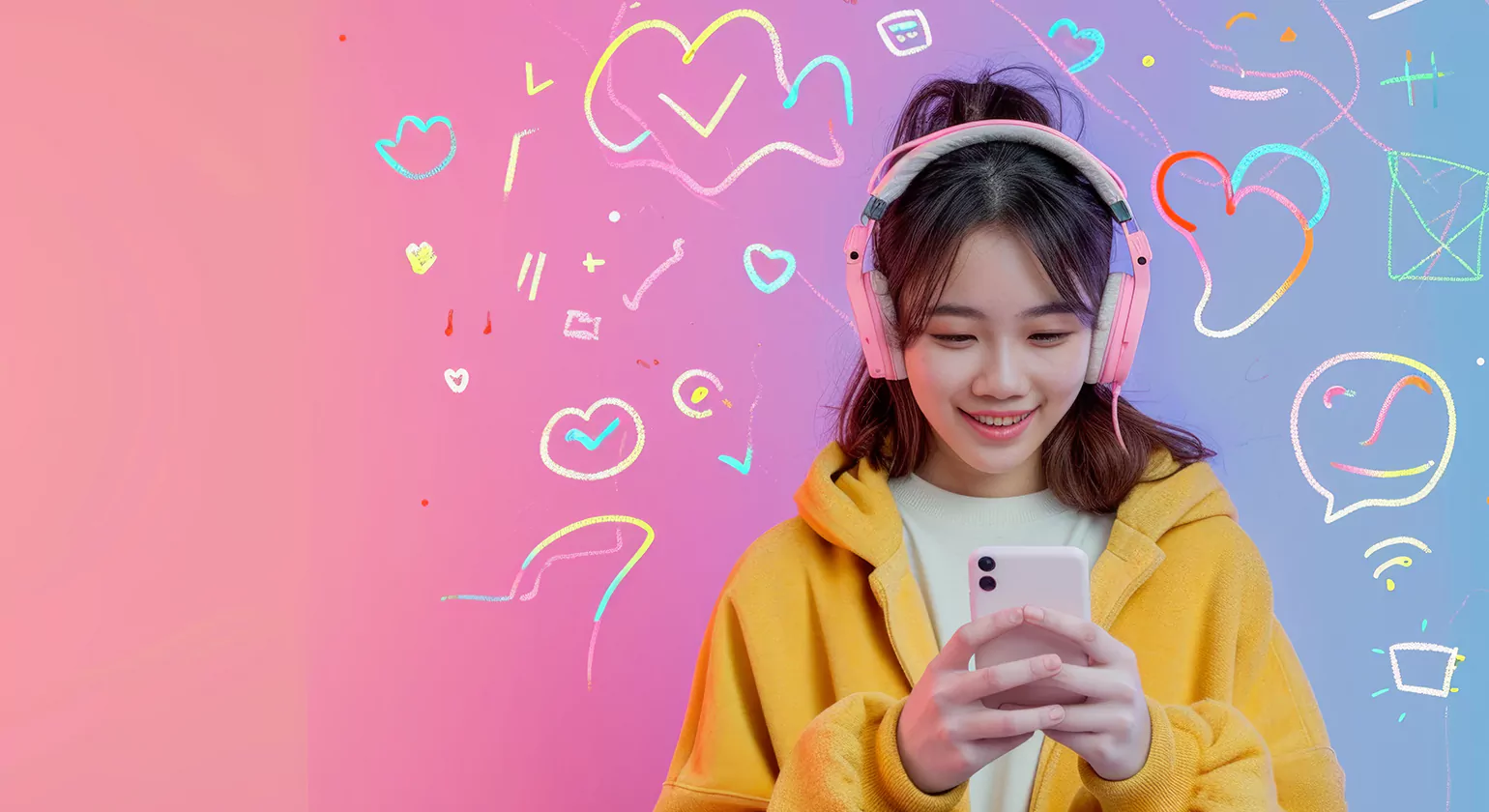
If social media is taking a toll on your mental health, know that you’re not alone. At Lakes Counseling, we offer Teen Therapy and Therapy for Depression to help individuals navigate challenges like anxiety, self-esteem struggles, and emotional distress linked to social media use. Our compassionate professionals provide a safe space for teens to express their feelings, develop healthy coping strategies, and regain control of their well-being. Whether you’re struggling with social media addiction, cyberbullying, or feelings of isolation, support is available. Visit Lakes Counseling to learn more and take the first step toward a healthier mind.
FAQs
Is social media really bad for my mental health?
Social media can increase anxiety and depression, especially with heavy use or frequent comparison to others—over half of teens and adults report negative impacts on well-being.
How do social media algorithms affect mental health?
Algorithms often prioritize engaging content, which can trap users in negative emotional cycles, increase social comparison, and expose teens to harmful mental health content.
What are signs social media is harming my mental health?
Feeling anxious, inadequate, or lonely after scrolling, losing sleep, or compulsively checking feeds are common warning signs.
Can social media ever benefit mental health?
In moderation, social media offers connection and support, but excessive use is linked to poorer mental health, especially among youth.
How can I protect my mental health from social media?
Limit screen time, use “do not disturb” modes, and take regular digital detoxes—over 50% of users have tried breaks to improve well-being.
Are teens more affected by social media than adults?
Yes, teens report higher anxiety, depression, and negative self-image linked to social media, with nearly half seeing a mostly negative effect on peers.
How does social media impact sleep?
About 41% of users report sleep problems from late-night social media use, which disrupts rest and worsens mental health.
What is “problematic social media use”?
Problematic use means feeling upset or discontent when not online, spending excessive time, or letting social media interfere with daily life and mental well-being.
Can parents help teens manage social media risks?
Parents can set boundaries, discuss online experiences, and encourage offline activities to help teens balance social media use and protect mental health.
